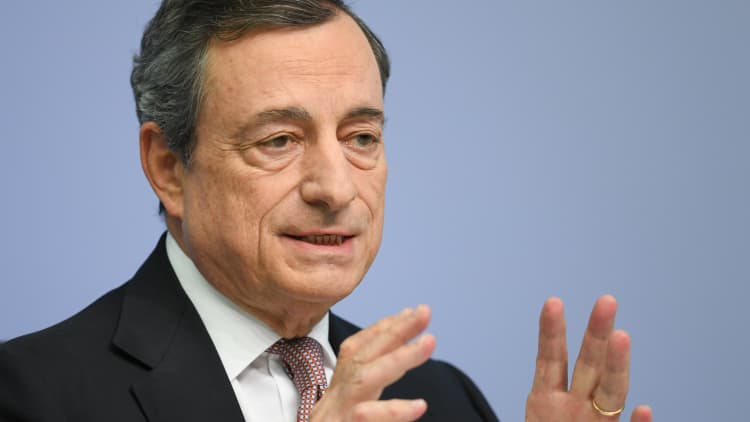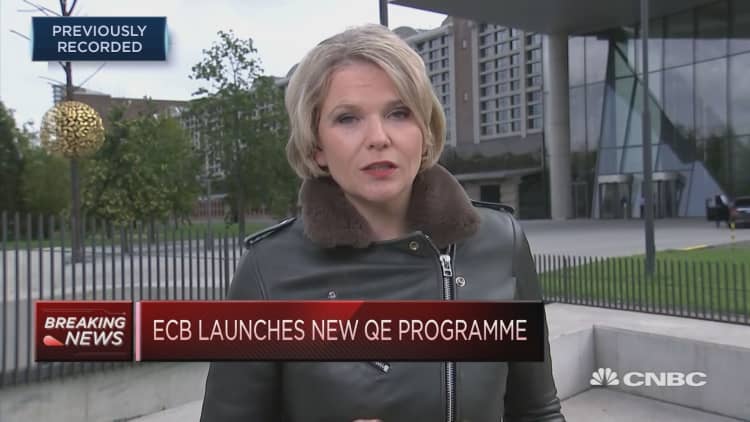
The euro fell sharply against the dollar after the European Central Bank (ECB) cut its key interest rate and reintroduced a a major stimulus program.
Just prior to the decision the currency was sitting near a session high against the dollar of 1.1032. Following the announcement, the euro fell more than half a percent to a day's low of $1.0957. Euro zone bond yields also fell to session lows in reaction.
The central bank cut its main deposit rate by 10 basis points to -0.5%, falling short of some market forecasts that had been looking for as much as a 20 basis point cut.
The reintroduction of the quantitative easing (QE) program was also expected although President Mario Draghi's decision to cap it at 20 billion euros ($22 billion) a month is around half as much as some had expected. The ECB looks to have offset some disappointment at that figure by refusing to place an end date on purchases.

Borrowing terms for banks were also sweetened by Draghi's team, reducing the interest rate cost of the TLTRO (targeted long-term refinancing operations) program down to match the main deposit rate. A new tiered deposit rate system is also to be introduced, designed to protect banks from the global trend toward negative rates.
Despite this, the aggregate stock price of European banks fell sharply, suggesting market disappointment at the ECB action.
In his opening remarks at a press conference following the policy announcement, Draghi said data warranted the central bank action.
"Incoming information since the last Governing Council meeting indicates a more protracted weakness of the euro area economy, the persistence of prominent downside risks, and muted inflationary pressures."


